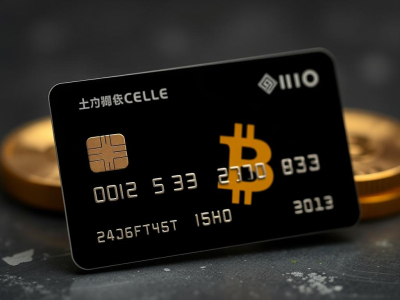
Selecting a cryptocurrency payment gateway requires careful evaluation of transaction fees, processing speed, and security measures. Businesses must prioritize gateways that offer seamless integration with existing systems while providing multiple payment options to cater to diverse customer preferences.
A reliable gateway not only facilitates swift transactions but also ensures robust security protocols to protect sensitive data. Look for solutions that include features such as two-factor authentication and encryption to minimize risks associated with cryptocurrency payments.
Moreover, assess the scalability of the chosen gateway. As your business grows, the ability to handle an increasing volume of transactions without compromising performance is vital. Choose a provider that can adapt to your evolving needs while maintaining high standards of service.
Assessing Transaction Fees
Evaluate transaction fees meticulously when selecting a cryptocurrency payment gateway. These fees can significantly impact your business's profitability, making it essential to comprehend the fee structure of each option available.
Fixed vs. Variable Fees: Some gateways charge fixed fees per transaction, while others employ a percentage-based model. Analyze which structure aligns better with your transaction volumes and average sale amounts.
Hidden Costs: Investigate potential hidden costs associated with integration and processing. These may include setup fees, monthly maintenance charges, or additional costs for currency conversion.
Comparison of Gateways: Compile a list of potential gateways and compare their fee structures directly. A comprehensive comparison will reveal not only the most cost-effective option but also those that offer superior security features without compromising on affordability.
Volume Discounts: For businesses anticipating high transaction volumes, inquire about volume discounts. Some providers offer reduced rates for businesses that exceed certain thresholds, resulting in substantial savings over time.
Impact on Pricing Strategy: Understand how transaction fees influence your pricing strategy. Adjustments may be necessary to maintain margins while remaining competitive in the market.
A thorough evaluation of transaction fees is paramount for informed decision-making regarding the best cryptocurrency payment gateway for your business needs.
Evaluating Security Features
Prioritize a cryptocurrency payment gateway that implements multi-layered security protocols. Look for features such as end-to-end encryption, which protects transaction data during processing. Ensure that the gateway complies with industry standards like PCI DSS to safeguard sensitive information.
Examine the provider's fraud detection mechanisms. A robust system should utilize machine learning algorithms to identify and mitigate suspicious activities in real-time. Verify if there are measures in place for chargeback protection, as this can significantly affect transaction fees and overall business profitability.
Assess the integration of two-factor authentication (2FA) for user accounts. This adds an essential layer of security by requiring a secondary verification step during login or transaction approval. Additionally, consider gateways that offer wallet security features, such as cold storage solutions for cryptocurrencies, minimizing exposure to online threats.
Research the history of security breaches associated with potential payment gateways. A transparent record of how they have handled past incidents is indicative of their reliability. Regular software updates and vulnerability assessments should be part of their operational practices to maintain a secure environment.
Finally, evaluate the customer support offered by the gateway provider regarding security issues. Responsive support can be critical in resolving problems quickly and efficiently, ensuring minimal disruption to your business operations during any potential security incident.
Integrating with Existing Systems
Select a cryptocurrency payment gateway that offers seamless integration with your current systems. This reduces operational disruptions and enhances the overall transaction experience.
- API Compatibility: Ensure the gateway provides robust APIs for easy connection to your e-commerce platform or ERP system. Look for documentation that simplifies the integration process.
- Plugin Availability: Check if the payment gateway has plugins for popular platforms like Shopify, WooCommerce, or Magento. This can significantly speed up implementation.
- Multi-Currency Support: Choose a gateway that allows transactions in multiple cryptocurrencies and fiat currencies to accommodate diverse customer preferences.
The ability to process transactions directly from existing checkout systems minimizes friction and enhances user experience. Opt for gateways that support quick setup options, reducing time to market.
- Real-Time Transaction Processing: Select a solution that offers instant transaction confirmations, improving cash flow management and customer satisfaction.
- Reporting Tools: Integrated analytics features can help monitor transaction performance, fees incurred, and conversion rates over time. This data is critical for ongoing business strategy adjustments.
Prioritize security features within the integration process. Choose gateways that provide end-to-end encryption and comply with industry standards to safeguard sensitive financial information during processing.
- User Authentication: Implement additional layers of security such as two-factor authentication (2FA) to protect against unauthorized access during transactions.
- Regular Updates: Ensure the gateway provider commits to regular updates and maintenance which is crucial for addressing potential vulnerabilities in the system.
Selecting a cryptocurrency payment gateway requires careful assessment of how well it integrates with existing frameworks while maintaining high standards of security and efficiency in transaction processing.
Analyzing Customer Support Options
Examine the customer support channels available with each cryptocurrency payment gateway. Prioritize gateways offering multiple contact methods such as live chat, email, and phone support. Ensure that their support teams are knowledgeable about both technical issues and payment processing specifics.
Evaluate response times. A gateway with guaranteed response times within a few hours can minimize disruptions in business operations. Check for 24/7 availability to address urgent matters that could impact transaction security or customer experience.
Review user feedback on support effectiveness. Testimonials and reviews can provide insights into how well a company resolves issues related to fees, integration challenges, or security concerns during transactions.
Investigate if the gateway offers dedicated account managers for businesses dealing with high transaction volumes. Personalized support can facilitate smoother integration processes and quicker resolutions to complex issues.
Finally, consider whether the provider has a robust knowledge base or help center. Comprehensive documentation can empower users to resolve common issues independently, enhancing overall satisfaction with the service.


You can be the first!